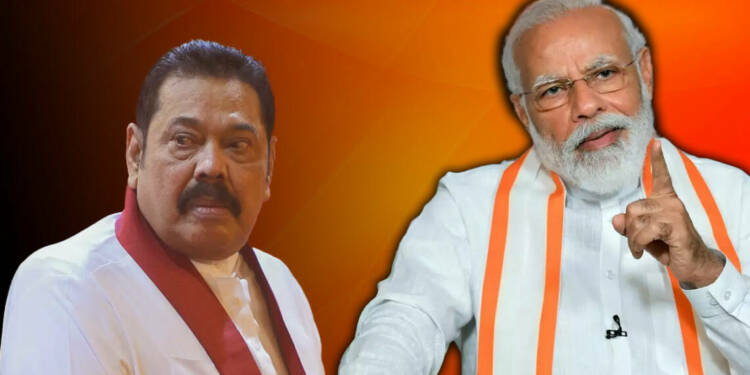After the initial hiatus, India bagged an even bigger deal in Sri Lanka on Tuesday for the development of the West Container Terminal (WCT) at the Colombo Port, along with Japan. The Sri Lankan government reached this agreement a month after they turned down the 2019 tripartite agreement to jointly develop the East Container Terminal (ECT), citing “foreign involvement” as a justification.
The Rajapaksa government of Sri Lanka has offered India and Japan a better deal than the previous one. Firstly, the West Container Terminal is strategically more important than the East Container Terminal because WCT is just a couple of kilometres from a China-run port city, CICT. Secondly, earlier Colombo was sharing just 49 per cent of the stakes in the ECT projects, whereas now they are awarding Indian companies with 85 per cent of the stake in the port deal.
Historically, India has always had a strategic interest in the Sri Lankan ports, but invisible strains have haunted the bilateral relations time and time again. Nevertheless, India accounts for more than 70 per cent of the total transhipment business at the Colombo Port. But when China crept inside the seaport of Colombo in order to manage the Colombo International Container Terminal, that irked the Indian authorities. The previous Sri Lankan government invited both India and Japan into a Trilateral Memorandum of Cooperation in ECT. However, the deal could not go through as Sri Lanka backed out before leading the talks to a full-fledged agreement.
The real reason behind Sri Lanka’s U-turn is the efficient foreign policy of the Indian government. India’s noble initiatives such as “Vaccine Maitri“ are winning hearts globally, and Sri Lanka has also been a huge beneficiary of this initiative. It also helped to push the matter forwards when the Indian Foreign Secretary, Harsh Vardhan Shringla sent a stern warning to Sri Lanka for rallying behind China interests. It is also important for Sri Lanka to woo India for its support at the ongoing UN Human Rights Council. The Sri Lankan government also tried to make peace with the Indian Prime Minister Narendra Modi by sending a letter.
As reported by the TFI Media, the earlier deal was scrapped because China intervened and agitated the labour union to stage a protest against the Indian interests. Pressurised by the labour union, the government of Sri Lanka rolled back from the ECT deal. It was quite evident that China was a hurdle in the 2019 deal. Whereas the recent developments regarding the port deal clearly show that India took two steps backwards, but leaps four steps forward and grabbed the deal near the China-backed port, and that too with 85 per cent of the stake, controlling the shareholding structure of the WCT.
With this decision, Sri Lanka left China in a weary situation. Indian presence near a Chinese-run port in Sri Lanka is going to force the Chinese to always look over their shoulders. This is a major success for the Indian Foreign policy machinery in the Indian Ocean, and now could be eyeing the Hambantota port.
